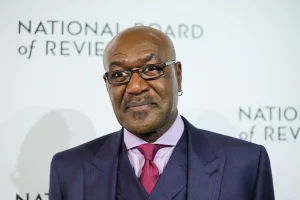The Hidden Power of Meaningful Connections: Why Quality Trumps Quantity in Social Relationships
The Science Behind Social Well-being: New Research Challenges Conventional Wisdom
In an age where social media platforms boast about connection metrics and friend counts climb into the thousands, a growing body of research suggests we’ve been measuring our social lives all wrong. Extensive studies from leading institutions including Harvard University’s long-running happiness study and recent work from the University of Michigan’s Health and Retirement Study indicate that the quality of our social interactions—not the sheer volume—plays a decisive role in our physical and mental health outcomes. Dr. Robert Waldinger, director of Harvard’s landmark 85-year study on adult development, notes that “Good relationships don’t just protect our bodies; they protect our brains.” This research demonstrates that meaningful connections serve as powerful predictors of longevity, cognitive resilience, and overall life satisfaction. For many mental health professionals, these findings confirm what they’ve observed in clinical practice: authentic relationships provide a protective buffer against life’s inevitable stressors, while superficial connections often leave people feeling more isolated than genuinely connected.
The distinction between deep and shallow connections has never been more relevant than in today’s digital landscape. Social psychologist Dr. Susan Pinker, whose work explores the connection between face-to-face interaction and health, explains that “Digital connections can supplement real relationships, but they cannot replace them.” Her research reveals that virtual interactions often lack the neurological benefits triggered by in-person contact, including the release of oxytocin and other mood-regulating hormones that strengthen our immune systems and reduce inflammation. This biochemical response explains why proximity to trusted friends and family members can literally extend our lives. A landmark meta-analysis published in PLOS Medicine found that strong social relationships increase survival likelihood by approximately 50%—comparable to quitting smoking and exceeding the benefits of exercise or maintaining healthy body weight. These findings suggest that prioritizing meaningful social interactions represents one of the most significant health interventions available, yet it remains surprisingly underemphasized in public health discussions focused on diet, exercise, and medical interventions.
Beyond Numbers: Redefining Social Success in the Digital Age
The pressure to maintain extensive social networks has intensified dramatically with the rise of social media platforms, where success is often measured in followers, likes, and digital engagement. This quantitative approach to relationships has created what sociologists call “the paradox of connection”—despite unprecedented opportunities to connect, rates of loneliness have reached epidemic proportions across all age groups. Dr. Julianne Holt-Lunstad, whose research at Brigham Young University has established social isolation as a significant public health threat, notes that “The perception that one has meaningful relationships and can rely on others if needed may be more important than the actual number of relationships.” Her work distinguishes between social integration (the quantity of relationships) and social support (the quality and reliability of those connections). Tellingly, her research demonstrates that perceived social support—the belief that others would be there in times of need—provides more substantial health benefits than merely having numerous casual acquaintances. This distinction proves particularly important as people navigate life transitions like relocating, changing careers, or experiencing family changes, when the temptation to prioritize network expansion over deepening existing relationships can be strong.
The quality-versus-quantity paradigm extends beyond personal health outcomes to professional and community contexts as well. Workplace studies conducted at Google and other major corporations reveal that psychological safety—the ability to be authentic and vulnerable with teammates—contributes more significantly to team performance than individual talent or group size. Similarly, community research demonstrates that neighborhoods with strong social cohesion experience lower crime rates, better educational outcomes, and more effective disaster resilience, regardless of population density or demographic diversity. Dr. Thomas Joiner, whose work focuses on belongingness and social connection, emphasizes that “Humans evolved as social creatures with a fundamental need to belong, but belonging requires more than mere presence—it requires mutual understanding and genuine care.” This perspective helps explain why some people surrounded by others still experience profound loneliness, while others maintain robust well-being with just a few close relationships. The key distinction appears to lie in the presence of reciprocal vulnerability, shared values, and reliable support—qualities that require investment beyond casual interaction.
Cultivating Deeper Connections: Practical Strategies for Meaningful Relationships
Health psychologists increasingly recommend relationship quality assessments as part of regular wellness check-ups, encouraging patients to evaluate not just how many social interactions they have, but whether those interactions leave them feeling energized, understood, and supported. Dr. Vivek Murthy, who has written extensively about loneliness as a public health concern, suggests several evidence-based approaches to deepen existing connections: practicing presence by removing digital distractions during conversations; engaging in service activities with friends rather than passive consumption; and creating regular rituals that prioritize meaningful exchange over surface-level interaction. Research from positive psychology pioneers like Dr. Martin Seligman indicates that relationship-building activities that incorporate constructive feedback, shared vulnerability, and active listening contribute significantly more to well-being than casual social events without these elements. According to relationship researcher Dr. John Gottman, known for his ability to predict relationship success with remarkable accuracy, the key indicator of relationship quality isn’t the absence of conflict but rather how people navigate disagreement—whether they maintain respect and curiosity even during challenging conversations.
Implementing these insights requires intentional shifts in how we structure our social calendars and communication habits. Mindfulness expert Jon Kabat-Zinn observes that “The quality of our relationships depends largely on the quality of our attention,” highlighting how fragmented focus undermines connection. Studies from the University of California, Berkeley’s Greater Good Science Center confirm that practicing active listening—where participants focus completely on understanding rather than formulating responses—significantly enhances relationship satisfaction and emotional intimacy after just a few sessions. Similarly, vulnerability researcher Dr. Brené Brown’s work demonstrates that willingness to share authentic experiences, including failures and uncertainties, creates bridges of empathy that strengthen social bonds. This approach stands in stark contrast to curated self-presentation common on social platforms, which often creates comparison-based anxiety rather than genuine connection. For those looking to enhance their social well-being, experts recommend quality-focused practices: scheduling uninterrupted time with close friends; creating environments conducive to meaningful conversation; establishing regular check-ins with important connections; and practicing authenticity rather than impression management during social interactions.
The Future of Social Health: Integrating Connection Quality into Public Health Frameworks
Public health initiatives are beginning to incorporate relationship quality into preventive health guidelines, recognizing that social well-being represents a critical yet underaddressed determinant of physical health outcomes. The United Kingdom made headlines by establishing a Minister for Loneliness in 2018, acknowledging the substantial economic and health costs of social isolation. Several progressive healthcare systems have implemented “social prescribing” programs, where physicians can refer patients to community support coordinators who help connect them with meaningful social activities and relationship-building opportunities rather than defaulting to medication. Dr. Dean Ornish, whose pioneering work on lifestyle medicine has demonstrated remarkable success in reversing chronic disease, includes relationship quality as one of four essential pillars in his intervention protocol, alongside nutrition, physical activity, and stress management. “Our program helps people create a network of love and support,” Ornish explains, “because we’ve found that it’s nearly impossible to make lasting health changes without addressing the fundamental human need for meaningful connection.”
The emerging field of social genomics provides compelling biological evidence for prioritizing relationship quality, demonstrating that loneliness and isolation trigger gene expression patterns associated with inflammation and reduced immune function. Conversely, positive social connections activate genes linked to antiviral responses and reduced stress reactivity. As healthcare systems increasingly recognize the cost-effectiveness of addressing social determinants of health, relationship quality assessment tools are being integrated into electronic health records and preventive screening protocols. Forward-thinking employers have begun incorporating relationship-building activities into wellness programs, recognizing that social cohesion reduces absenteeism, healthcare costs, and turnover while improving productivity and innovation. The pandemic accelerated recognition of connection as essential rather than optional, as isolation’s profound mental and physical health impacts became impossible to ignore. Moving forward, public health leaders emphasize the need for community design that facilitates organic relationship formation across generations and backgrounds through shared spaces, inclusive activities, and infrastructure that encourages face-to-face interaction. As Dr. Murthy notes, “A focus on building a more connected society isn’t just about feeling good—it’s about creating the conditions that allow people to live longer, healthier lives.” In this vision of social well-being, success isn’t measured by network size but by the presence of relationships characterized by trust, authenticity, and mutual support—the very qualities research continues to identify as central to human flourishing.







